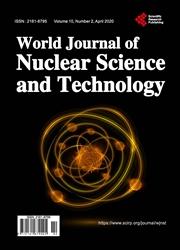Towards Safer and More Sustainable Ways for Exploiting Nuclear Power
引用次数: 7
Abstract
Future electricity systems are challenged by deep decarbonization and concurrently increasing demand and there are growing concerns that renewables cannot shoulder this alone. Starting from the proven principle of diversity, we argue for keeping the nuclear option open or even for expanding its use. However, the perspectives are dim for the current technology as safety concerns and social aversion remain as fundamental problems. While looking for future revolutionary safe and more sustainable nuclear concepts we first review the main characteristics of civil nuclear energy, as well as its safety records and technical progress. We then list the key requirements for innovative nuclear systems designs which are less dependent on active safety systems and human performance as well as social stability. This allows us to provide a concept by concept comparison and assessment of existing and novel technologies and designs including different coolants and neutron spectra. The results indicate a high potential for far-reaching improvements compared to most advanced LWRs, although none of the candidate concepts meets all requirements convincingly, yet, helium cooled, small modular reactors (HTR-PM) come closest. We end by stressing the need for future research and development, and keeping human capital and know-how in nuclear energy; we call for an urgent increase in government and international RD&D funding by the order of a few hundreds of billions of USD per year, which will likely lead to breakthroughs that will restart productivity growth in severely affected stagnating modern economies.以更安全、更可持续的方式开发核能
未来的电力系统面临深度脱碳和需求增加的挑战,人们越来越担心可再生能源无法独自承担这一任务。从已证明的多样性原则出发,我们主张保留核选项,甚至扩大其使用。然而,目前的技术前景黯淡,因为安全问题和社会厌恶仍然是根本问题。在寻找未来革命性的安全和更可持续的核概念时,我们首先回顾了民用核能的主要特征,以及其安全记录和技术进步。然后,我们列出了创新核系统设计的关键要求,这些设计较少依赖于主动安全系统、人类性能以及社会稳定。这使我们能够对现有和新技术和设计进行逐个概念的比较和评估,包括不同的冷却剂和中子光谱。结果表明,与最先进的LWR相比,有很大的潜力进行深远的改进,尽管没有一个候选概念令人信服地满足所有要求,但氦冷却小型模块化反应堆(HTR-PM)最接近。最后,我们强调未来研究和发展的必要性,并保留核能方面的人力资本和专门知识;我们呼吁紧急增加政府和国际研发资金,每年增加数千亿美元,这可能会带来突破,重启受严重影响的停滞现代经济体的生产力增长。
本文章由计算机程序翻译,如有差异,请以英文原文为准。
求助全文
约1分钟内获得全文
求助全文

 求助内容:
求助内容: 应助结果提醒方式:
应助结果提醒方式:


